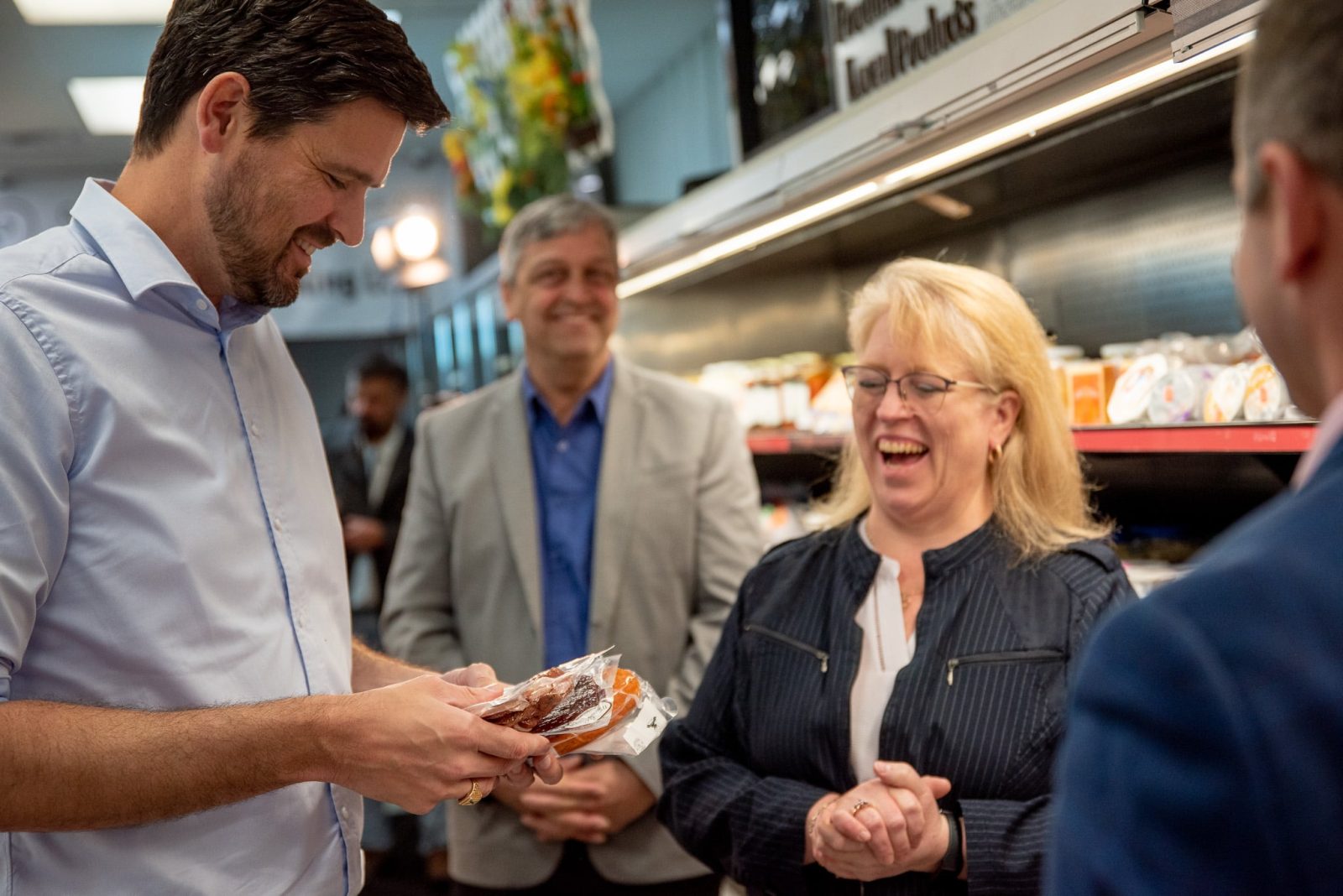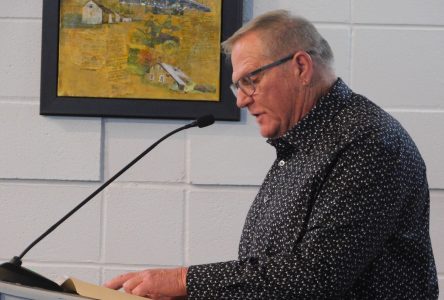The local and federal representatives visited the meat processor Monday morning, May 8, to announce the extension of the Agri-Food Pilot program, which works with employers in the agri-food industry to provide foreign temporary workers a pathway to permanent residence status.
« Our farmers and food processors depend on the steady arrival of foreign workers so that planting, harvesting and food processing activities can take place throughout the year, and they need our continued support to attract and retain these talented workers,” said Fraser.
First launched in May 2020, the pilot program can process up to 2,750 applications annually and was set to expire on May 14 this year. Fraser announced the government’s intention to support the program until May 2025.
The announcement included removing the annual occupational caps which limited the number of applicants allowed per occupation. For employers in the region, the lifting of limits means more labour will become available for rural communities.
“It opens the doors to get more butchers and meat cutters in the area,” said L’Orignal Packing owner Christine Bonneau-O’Neill. « There are so few coming in that they usually go to the big cities like Ottawa, Montreal, Toronto. Decreasing the limit will help bring them to the rural areas.”
Bonneau-O’Neill said L’Orignal Packing has just one foreign worker on staff, partly because experienced butchers, both at home and abroad, are difficult to find. She hopes this program will give her the opportunity to hire more labour from outside of Canada.
“There aren’t many butchers around and it isn’t a trade people are really getting into,” said Bonneau-O’Neill. “I have one foreign worker who has been with us since July. As we grow, I’m looking into increasing if I can, especially as a butcher or meat cutter. That would be a great thing.”
UCPR warden and Mayor of Champlain Township Normand Riopel was pleased to hear rural communities were considered when deciding to extend the program.
“Whether it’s the upper tier or the lower tier, the municipalities will benefit because we will be able to get people employed in our local businesses,” said Riopel “It’s great news.”
Other changes to the permanent residency transition include allowing unions, not just employers, to attest to a candidate’s experience, accepting work experience gained under an open work permit and expanding open work permit access to family members.
“I believe it’s incumbent upon us to extend opportunities for the families to be with them,” said Fraser. “And I think we have a moral responsibility to promote family reunification, which is also going to be an excellent recruitment tool when workers who are thinking about coming to Canada know that their loved ones will be able to be here with them.”
“It gives us hope for the future, hope in growing our business,” said Bonneau-O’Neill. “It’s a good thing to have hope for future generations of workers, particularly in these trades.”



